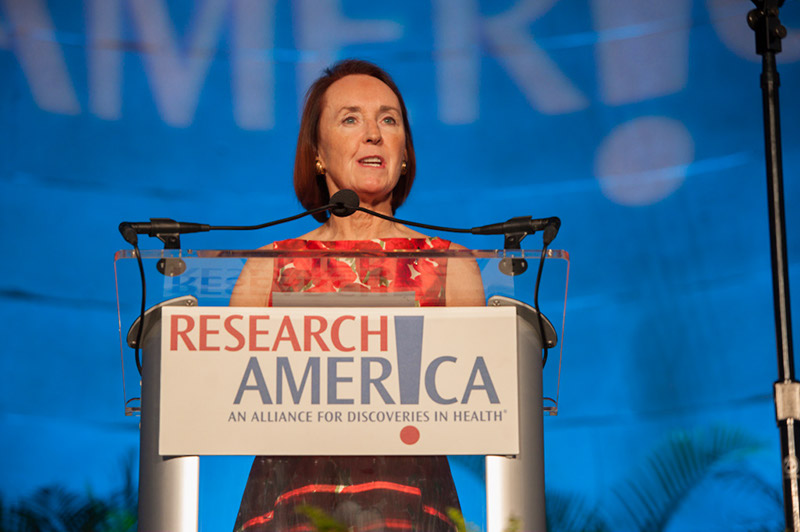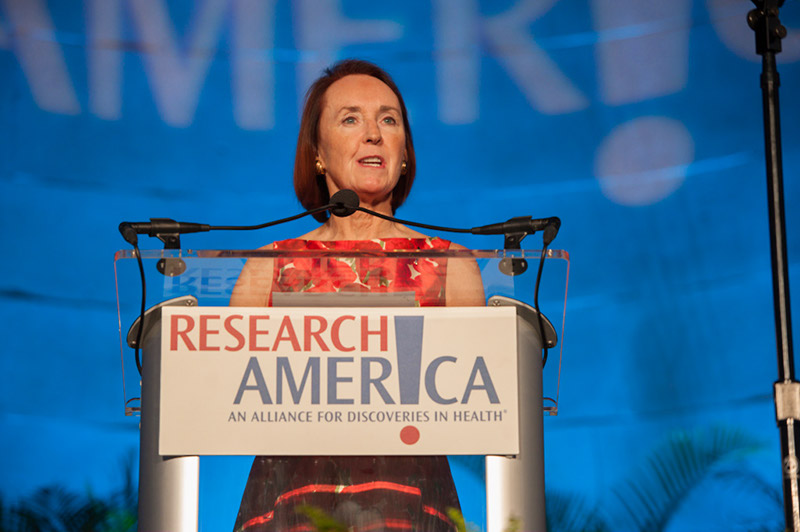Welcome News

 Dear Research Advocate:
Dear Research Advocate:
In welcome news, Congress is making progress on FY19 appropriations. The Senate Appropriations Committee has completed work on all 12 bills and Chairman Richard Shelby (R-AL) has said that the full Senate may consider a package containing the Defense and Labor-HHS bills during the week of July 23rd. We can’t count our chickens before they hatch, but this is good news indeed, considering the Senate has not passed the LHHS bill before fiscal year-end since 2007. Yesterday, the full House Appropriations Committee passed their version of the Labor-HHS spending bill, which includes $38.3 billion for NIH, an additional $1.25 billion over the FY18 level, an additional $427M for CDC bringing the total to $7.6B, and level-funding for AHRQ at $334M.
It is difficult to overestimate the value of true regular order. When the appropriations process drags on beyond a fiscal year, agencies become, for all intents and purposes, frozen in time. Their funding remains flat and their ability to initiate anything new is drastically curtailed. Use your advocacy acumen to reinforce members of Congress as they work to complete FY19 appropriations before the 9/30 deadline. Here’s an editable tweet that you can send to your elected officials with a couple of quick clicks, and if we can assist you in letters, LTEs, etc., send a quick note to Sara at [email protected]
Also welcome news, and also complicated: the EPA has extended the comment period for the proposed rule, Strengthening Transparency in Regulatory Science, until August 16th. The agency will hold a public witness hearing on July 17th. There are significant concerns with this rule, which could compromise the scientific basis for EPA decision-making and create a dangerous precedent for evidence-based policymaking going forward. There is a listening option for those who cannot attend the hearing in person. Learn more here.
Speaking of comments, Research!America responded to a Department of Health and Human Services (HHS) Request for Information (RFI) on “Facilitation of Public-Private Dialogue to Increase Innovation and Investment in the Healthcare Sector.” Department leadership is establishing a process for external input as it pursues improvements in healthcare financing and delivery. It won’t surprise you that our comments focused on 1) the value of patient input; 2) the wealth of expertise and experience close to home (in-house agencies like AHRQ, CMMI and HRSA, as well as PCORI); and the importance of engaging the full spectrum of stakeholders working to advance health and healthcare. Read our comments here.
July is National Minority Mental Health Awareness month. According to a report from the Agency for Healthcare Research and Quality (AHRQ), racial and ethnic minority groups in the U.S. are less likely to have access to or use mental health services and are also less likely to receive quality care. Research!America recently partnered with the National Hispanic Medical Association (NHMA) and National Medical Association (NMA) on a Capitol Hill briefing that highlighted these issues and PCORI’s role in addressing them. A recent article in The Hill co-authored by NHMA and NMA leadership emphasized that to improve minority mental health, additional investments in research to address health disparities are a must, a point of consensus that is underscored in public opinion surveys commissioned by Research!America.
Registration is open for our National Health Research Forum in Washington, D.C. on September 6. Join us for a series of candid discussions on topics ranging from advances in brain science to maximizing the return on healthcare dollars. Also – new this year – a networking breakfast prior to the Forum panels, and a soon to be announced special guest you will not want to miss. More to come…
Tomorrow is the first round deadline for graduate and postdoc-led science policy groups to submit proposals for Research!America’s bipartisan candidate engagement initiative for the midterm elections. We encourage groups with innovative ideas to participate. More information on this timely initiative can be found here.
Finally, because we have the World Cup only once every four years…fan that I am, I was struck by this Public Health Post blog that draws an analogy between the eleven players on a soccer team and the challenge of ‘winning’ at health. I’m not sure if the proportions are exactly right, but there is no doubt that we should be paying more attention to prevention and the social determinants of health, which the blog compares to the 10 players on the field. Medicine is the 11th player, the last line of defense (the goalie). In truth – just ask any fan – every player is vitally important, and all merit attention and resources!
Sincerely,
Mary Woolley




